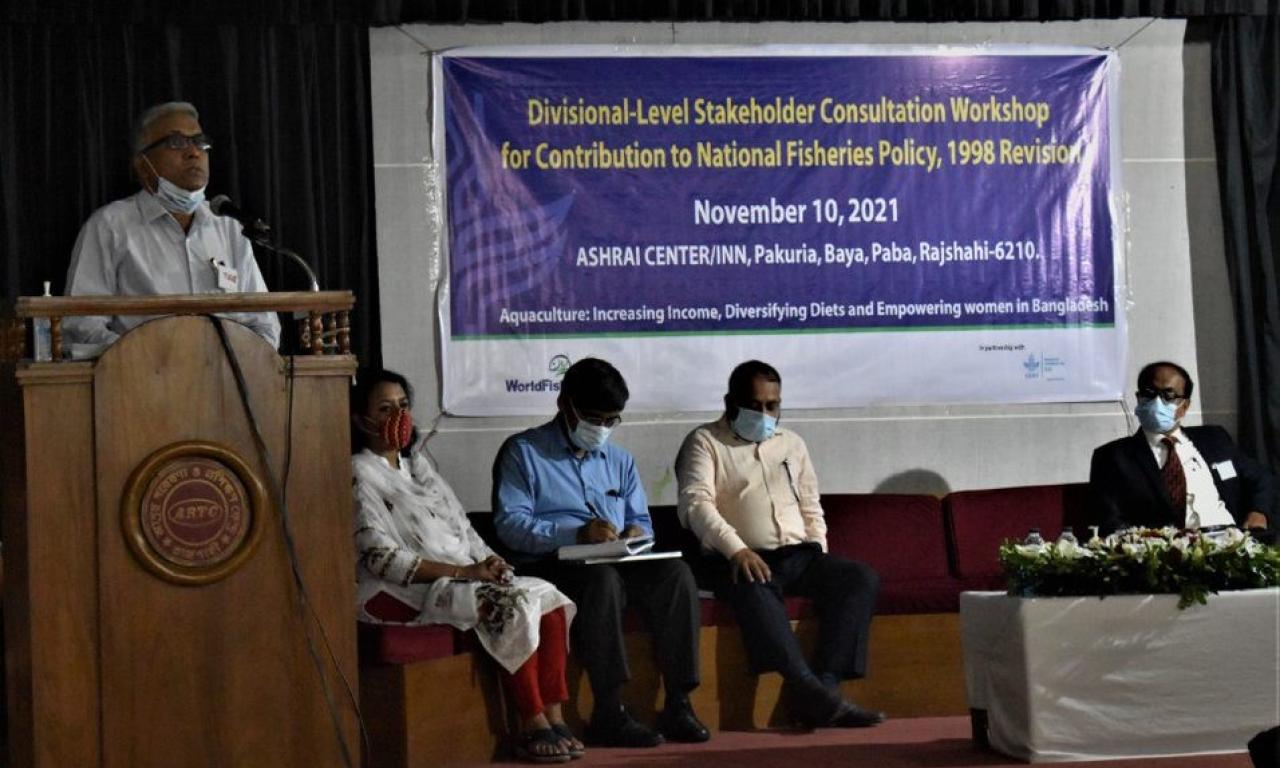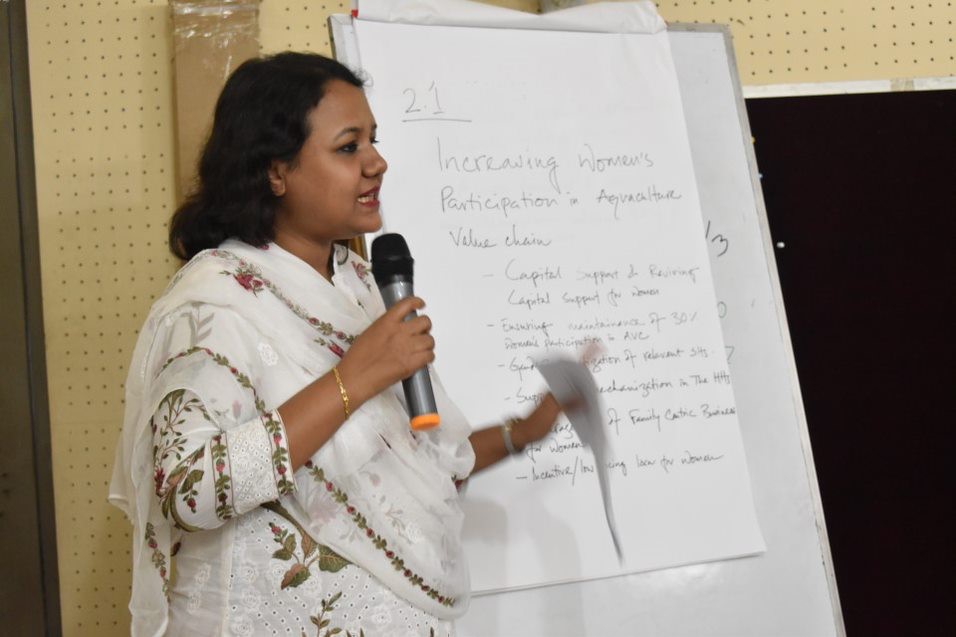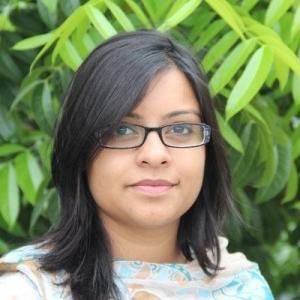
- The government of Bangladesh invited WorldFish to provide critical input and facilitate the revision of Bangladesh's National Fisheries Policy (1998)
- The revised National Fisheries Policy will help accelerate the expansion of aquatic food production in Bangladesh through sustainable aquaculture and resilient small-scale fisheries
A Divisional Stakeholder Consultation Workshop was co-hosted by WorldFish and Bangladesh’s Department of Fisheries (DoF) recently in Rajshahi, Bangladesh, to look at measures to transform the country’s fisheries and aquaculture sector into a more dynamic and sustainable venture by identifying and overcoming production bottlenecks.
The DoF, which falls under the purview of the Ministry of Fisheries and Livestock and is tasked with managing the country’s aquaculture and fisheries sector, was represented by its deputy director for Rajshahi, Md. Toafazuddin Ahamed.
"Bangladesh is a model for fish culture in ponds. We must reform marketing for the agriculture sector to include aquaculture. This must be undertaken as we revise the National Fisheries Policy (NFP)," remarked Ahamed.
Sustainability and resilience at the core of revised policy
The workshop proceedings emphasized the need to accelerate the expansion of aquatic food production through sustainable aquaculture and resilient small-scale fisheries. To this end, the revised NFP will have to take into account nutrition and public health, economic inclusion of women and youth, climate resilience and environmental sustainability.
"Fish is critical for food security, nutrition and poverty alleviation. Inland fisheries such as pond aquaculture have improved significantly in Bangladesh, and we need a solid strategy to sustain this development," said WorldFish Senior Scientist Benoy Kumar in his keynote.
Peerzadi Rumana Hossain, WorldFish’s climate research scientist, developed a methodological framework with four key themes and fifteen indicators to facilitate discussions on the policy revision.
Resolving teething issues through revised policy
Panelists of the workshop highlighted some of the issues faced by Bangladeshi fish farmers that can be addressed through the revision of the NFP. It is envisioned that many more tons of fish can be produced if the revised NFP promotes better farming techniques and addresses issues related to the supply and use of high-quality seed, production and feed.
The reduced availability of good carp broodstock to produce quality seed in rivers over the years is a grave concern for many Bangladeshi fish farmers as shared by Khondokar Touhidul Karim Mukul, a fish farmer and the owner of Monica Hatchery.
“It is crucial to develop a system whereby we can get good broodstock for our hatcheries. Apart from that, there is a need to understand available aquaculture technology better, especially those related to feeds and fish feeding for improved results," he said.
As feed is a critical input for quality fish production, the need to secure the supply of good quality feed in Bangladesh should be another area of focus for the revised NFP. Feed constitutes a significant portion of costs for any aquaculture enterprise. Farmers who lack the necessary knowledge to use the feed most efficiently and cost-effectively will exacerbate the issue further.
Several recommendations were made to address these concerns, including improving the production of higher quality feed at lower cost and better utilization of feeds through effective feeding methods.
David Rinto Das, a senior scientific officer with the Bangladesh Fisheries Research Institute (BFRI) shared that almost all food prices have risen with the exception of fish. This is attributed to an increase in fish culture to meet demand.
“It is critical that the revised NFP addresses themes such as market connections and cold storage in order to prevent harvest loss. At the same time, it is critical to safeguard open water fish species, many of which are endangered, to increase the production and diversity of available aquatic foods. Apart from that, the revised NFP must also look at the prevention of water pollution to ensure aquatic foods are safe for human consumption," he proposed.
Securing food and nutrition security through broad collaboration

The panelists also reminded the importance of continued and comprehensive cooperation between government and non-governmental actors such as the DoF, BFRI, Bank Asia, Thengamara Mohila Sabuj Sangha (TMSS), fish feed producers, hatchery owners as well as other relevant development partners to work on growth-oriented initiatives to advance Bangladesh’s aquatic food systems further.
Other panelists present at the workshop included Shahnaz Afrose Shahin, the agriculture department head for Bank Asia, Abdus Salam, director of TMSS and Ashgor Ali Khan, assistant director for the Department of Women and Child Affairs.
WorldFish, together with DoF, is currently organizing division-level workshops across Bangladesh. The first workshop was organized in Rangpur on 27 October 2021, with another two planned for Sylhet and Cox’s Bazar.
